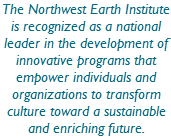You are currently browsing the tag archive for the ‘wild places’ tag.
 This week we are excited to share a guest blog post by Richard Kyte, Director of the D.B. Reinhart Institute for Ethics in Leadership at Viterbo University in La Crosse, Wisconsin. Thanks to Richard for his musings here on the importance of conservation and preservation of our wild places.
This week we are excited to share a guest blog post by Richard Kyte, Director of the D.B. Reinhart Institute for Ethics in Leadership at Viterbo University in La Crosse, Wisconsin. Thanks to Richard for his musings here on the importance of conservation and preservation of our wild places.
The answer generally given by those most involved in the conservationist movement is that we owe it to future generations. This answer is repeated in defense of setting aside fragile ecosystems, designating roadless areas, granting conservation easements, protecting the river bluffs, and establishing stricter zoning codes in counties.
But defending conservation practices in this way is problematic. It presupposes that developing policies for wise land use is a contest between the preferences of future generations and the needs of the present. It raises the question of why the interests of certain groups of people, such as hunters, anglers, trappers, hikers, and birdwatchers, should have precedence over the interests of home owners, automobile drivers, golfers, and bottled water consumers.
In fact, the debate in this country over land use has become emblematic of American democracy: a struggle between competing special interest groups to influence common laws and policies through elections.
But this is not the only way to frame the debate.
In Reflections from the North Country, Sigurd Olson, the conservationist and author principally responsible for the preservation of the Boundary Waters Canoe Area Wilderness, takes up the question of why we should care about wild places. He cites people like Paul Sears: “Conservation is a point of view involved with the whole concept of freedom, dignity, and the American spirit.”
And this from Harvey Broome, one the founders of the Wilderness Society: “Without wilderness, we will eventually lose the capacity to understand America. . . . If we lose wilderness, we lose forever the knowledge of what the world was and what it might, with understanding and loving husbandry, yet become.”
For Olson, like many of his contemporaries, the outdoors wasn’t just a place for recreation; it was essential to the development of moral character. And therefore the defense of conservation was not a defense of the special interests of a certain group of Americans; it was a defense of America itself.
That is why Sterling North could say, “Every time you see a dust cloud, a muddy stream, a field scarred by erosions, or a channel choked with silt, you are witnessing the passing of American democracy.”
Preserving open spaces, ensuring clean air and water, protecting wildlife and maintaining the diversity of species for the benefit of future generations was, to be sure, important to the early conservationists.
But they also regarded shortsighted development and exploitation of resources to be self-destructive and foolish, a sign not only of disregard for our children and grand-children, but a symptom of disorder in our present lives. They worried that if such disorder became pervasive in society, it could destroy American culture, leading to a nation characterized by pettiness, greed, and incivility.
Even a brief time spent in a natural setting allows one to experience the vital importance of things that can be appreciated but not possessed. It provides for the realization of an order of value that is not created or manipulated by society, but is eternally present. Without such experiences, life becomes a contest limited by the economy of the marketplace, of buying, selling, and trading—none of which are bad things, unless they are mistaken for the goal rather than the means.
Without natural places, we have no way of getting outside of the humanly constructed environment to gain perspective on our lives.
Olson himself put it best: “The conservation of waters, forests, mountains, and wildlife are far more than saving terrain. It is the conservation of the human spirit which is the goal.”
That’s a goal worthy of America’s best effort.
*This article was first published in the La Crosse Tribune, 2011.


